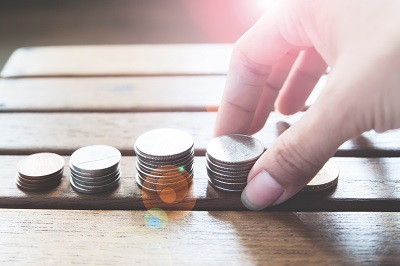
6 Habits to make the most of your Paycheque
It’s impossible not to be excited when your payday arrives. You work hard, put in long hours and even work overtime to earn enough money to cover all of your expenses and save some surplus for the ‘fun’. As tempting as it might be to splash out on something flashy with your next paycheque, it’s important to resist the urge to spend. Maxing out credit cards could rack up interest and could quickly get you in to debt.
When your income isn’t to blame
The choices you make every day define your financial state. Building good financial practices and sticking to them could get you the money you need, when you need it.
It really doesn’t matter how big your paycheque is, if you have bad spending habits, you’ll end up living payday to payday.
Before you go on a spending spree with your paycheque, always ask yourself:
- Do I know what I do with my income?
- Am I budgeting my paycheque wisely?
- Do I really need to spend money on this item?
- Is this more important than growing my savings?
People who are financially fit, have some or all of the below habits in common;
1. Create a Budget
As you use your income to pay for various bills, expenses and purchases – it’s extremely important for you to keep a track of all of your payments.
An essential step for staying on top of your spending is to create a budget. In order to do this you have to first list all of your recurring bills and expenses. Once that’s done, calculate the amount you must allocate from your net pay, to cover these payments. Pay yourself first (living costs, etc) and then prioritise your credit card bills or loans and make those repayments on time. For any expenses that can be easily altered or removed, leave these until last.
You could use a simple excel sheet or a budgeting program to work out a breakdown of your spending. It doesn’t need to be flashy, it just needs to be accurate and realistic. There are also several good budgeting apps and tools available online, which could help you adjust your financial habits. The most important element of budgeting is to maximise your savings and investments, in addition to keeping your spending habits organised and under control.
2. Pay off the Debt first
If you budget for minimum repayments on your loans to generate some extra cash, you could end up paying more in interest in the long run and potentially damage your credit score or rating. This could affect interest rates on your future loans and decrease your negotiating power.
The aim is to try and make higher repayments to cut down on the term and therefore pay less in interest over the life of the loan.
Ideally the objective is to become debt-free quickly so that you can live a more financially stress-free lifestyle.
In addition to loan repayments, if you are able to pay your credit card and utility bills on time, it could save you from a last-minute cash shortage, or the consequences of missing your payments altogether. To stay on track, you could set-up your payment dates around your payday. When you pay off your monthly expenses as soon as your payday arrives, you may be more inclined to invest or save the remaining money instead of spending it!
3. Arrange for Direct Deposits
If you are inclined to splurge as soon as your pay arrives, you may be able to make an arrangement with your employer to deposit your pay, or a part of it, in to your savings account. By doing so, you’ll be less likely to spend your paycheque as soon as it arrives and automatically have your savings set-aside.
This minimises the excuse that you can’t afford to save. When you automate your savings, there won’t be as much money available for you to splurge.

4. Put your money to work
When it comes to putting your money to work, time is valuable. You are losing the potential to grow your finances when you keep your money in a low-yielding account. It’s not hard to grow your nest egg and earn some extra cash with the same set-aside savings. If you can, opt for a high-interest savings account so you can maximise your return but be aware that some savings accounts have specific terms of use in order to obtain the high-interest return.
Retiring without having enough savings can be dangerous. So don’t let any excuses keep you from benefiting on the ultimate source at your disposal, TIME.
5. Build an emergency fund
It’s a good idea to keep some money for emergencies. There could be times when you are not financially prepared for surprises and you may not have savings to cover cash emergencies. There are options to borrow money from friends and family, your employer, banks or a payday lender, but it comes with a cost. If you are able to create a small emergency fund for yourself, it could cover you when you are hit with unpleasant events.
6. Reward yourself
Don’t be afraid to reward yourself now and then for being responsible with your finances. If you are using most of your paycheques to make your payments on time and saving the money where it’s appropriate, it’s okay to occasionally spend a little on fun.
However, always remember to spend responsibly and stay away from overspending. To see the results from these habits, treat your paycheque like a fitness program; follow it through without any excuses!




